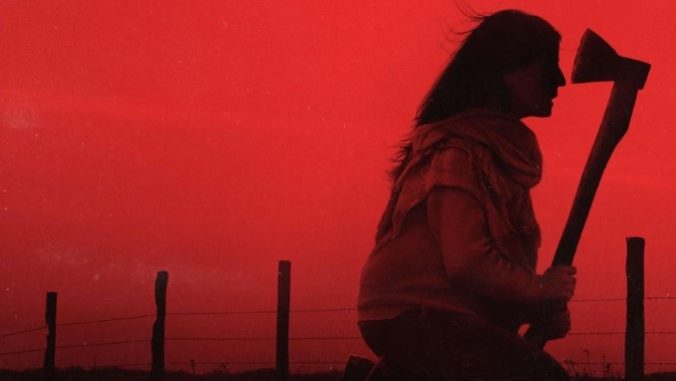The Best Movies of the Year: The Inescapable, Apocalyptic Contagion of When Evil Lurks

In Demián Rugna’s When Evil Lurks, God is assuredly dead. The progenitor of all beneficence in the universe is not dead in a metaphorical sense, but an all too literal one: The viewer is dropped into 2023’s most committedly disturbing horror film completely cold, realizing in dribs and drabs just how thoroughly humanity has apparently been abandoned by the divine. Rugna’s world feels like one that has grown up in the aftermath of some titanic, pivotal battle for mankind’s soul … a valorous and hard-fought crusade that we simply lost in the end. The creator has become a casualty, and this place has been overrun, not just by infernal corruption but an inescapable sense of loss. Entropy has set in, and the world is just going through the motions at this point, keeping the day-to-day fabric of life together with a fraying quilt of improvised patchwork maintenance. Perhaps the broken pieces can be held together for a while, but sooner or later, the collapse must come.
Or at least, that’s more or less what we can infer. The beauty of Rugna’s atmospheric horror gem is the precisely calculated distance it keeps between its acts of chilling corruption and brutality, and the audience’s understanding of the world and its consequences. The writer-director beautifully implies and hints at the depths of depravity that make up the firmament of this nightmare, but refuses to hold our hands with concrete literalism. Can our characters’ strict adherence to a set of rules avert any of the carnage? It’s impossible for us to say, given our total lack of comprehension of which minor infractions actually matter in the grand scheme of things. We are, after all, talking about matters of life, death and the corruption of the very soul — how can we hope to grasp the subtleties of our own metaphysical destruction? This shit is beyond us.
When Evil Lurks is a “possession horror” movie. That is absolutely a fair assessment of whether it belongs in what has been one of the most prolific and creatively bankrupt subgenres of the broader horror world in recent years. But it carries itself in a manner totally opposed to so many of the one-word titles (Nefarious, Incarnate, Demonic, etc.) that continuously spawn updated versions of themselves in the straight-to-VOD cesspit, concerned not with firing off as many Exorcist clichés as possible within a 99-minute runtime but instead prioritizing the evocation of a uniquely nightmarish world, one so strange that it’s almost without comparison. And Rugna gives us precisely as many breadcrumbs as we need in order to semi-blindly stumble our way down that horrific path, no more and no less.
To start with, the mere fact that possession exists at all is typically not something one will find characters immediately acknowledging within the context of a horror movie. A more conventional Hollywood story of this nature typically involves a victim’s slow decline into spiritual/physical corruption while a bevy of onlookers fight tooth and nail against the acknowledgement of a spiritual source: Anyone who invokes “demonic possession” is shouted down as superstitious and unhelpful. But in the setting of When Evil Lurks, the idea of possession isn’t just plausible, but seemingly widely understood, at least on some level, by everyone present. For generations, it seems, these people have been growing up in a world where this is simply something that happens on occasion. Those who hear of the situation treat it not as an exceptional judgment from above (or below), but more like how one might be expected to react to news of the outbreak of a deadly virus in your school district. And that characterization ultimately isn’t far off at all. This is corruption that spreads easily, and invisibly, by vectors that are both physical and spiritual.
-

-

-

-

-

-

-

-

-

-

-

-

-

-

-

-

-

-

-

-

-

-

-

-

-

-

-

-

-

-

-

-

-

-

-

-

-

-

-

-








































